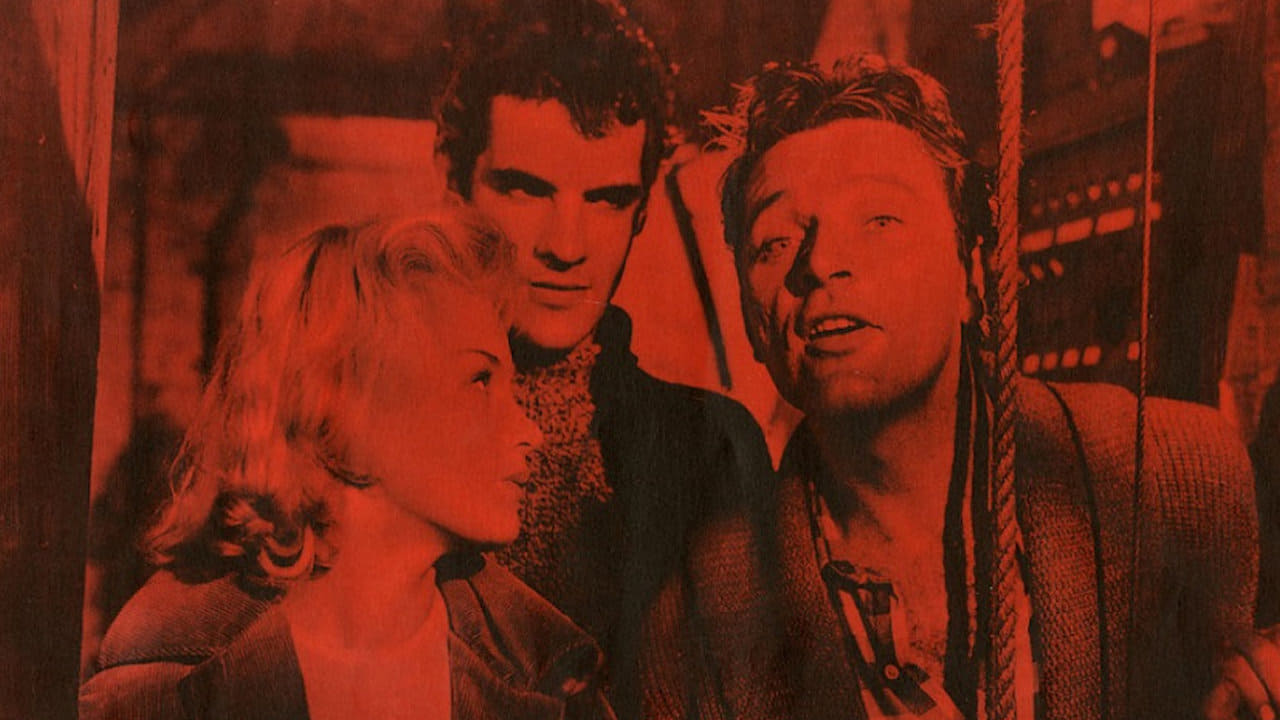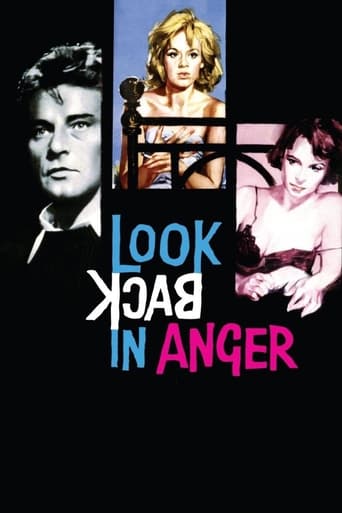

Supposedly a sensation in its time - and you can see why. There is an intensity in the portrayal of human relationships that is rarely seen in films from that era.However, this sensationalist aspect has ebbed away from the film over time. What you are left with is a film which, at times, is elegantly shot with beautifully written lines, but which is also very difficult to engage with, or even tolerate, in 2018.The main issue is the central character, Jimmy, played by Richard Burton. He is fundamentally unlikeable. More than that, he is a bully and a boor and an exploiter of women. Yet we are supposed to see him as some kind of hero (or perhaps anti-hero), when really he deserves none of the attention his friends and lovers give him.His instant seduction of another woman moments after his wife (belatedly) walks out on him is frankly preposterous. At release, it may have been seen as scandalous, but not now.The only element of decency he shows is where he defends an immigrant market trader, and that is one of the few scenes in the film that actually works.One for historical reference rather than modern enjoyment.
... View MoreRelentlessly depressing, "Look Back in Anger" offers Richard Burton somewhat miscast as a twenty five year old university graduate who spends virtually all of his time railing against his wife, his surroundings and his place as a member of Britain's working class of the 1950's. It would be a misnomer to classify this picture as entertainment; it's harsh and dreary, and except for Mom Tanner (Edith Evans), there aren't any genuinely likable characters here. One could make a case for Alison Porter (Mary Ure), lovely to look at most of the time, but completely subjugated to the tyrannical rants of her husband. The shocker of course was how easily Helena (Claire Bloom) replaced her in the squalid scheme of things, and one never gets a sense of what attracts her to the lout that she had no use for in the first place. It seemed like a plot device to make us hate Jimmy (Burton) even more, as if he wasn't doing a pretty good job of having us hate him all by himself.
... View MoreFirst off, Burton's way too old for the part of Jimmy Porter here. Burton was 33 when the film was made, and his features were already beginning to coarsen because of his lifestyle. That said, he gives a blistering performance, capturing the ferocious intelligence and equally ferocious anger writer John Osborne no doubt envisioned.But what a grim tale it is. What a gloomy, dingy, rain-sodden world Jimmy, Alison, Cliff and Helena inhabit. Crammed inside a seedy flat with barely enough room for two chairs and an ironing board, it's no wonder that tempers fray at times in fact it's a wonder that only Jimmy feels any kind of strain. Alison his wife, perfectly played by the ill-fated Mary Ure, has the patience of a saint and it's difficult to see exactly what it is about Jimmy that draws her to him. Osborne certainly provides us with precious little clue. But then perhaps it's just me, because I could see little reason for Jimmy transformed from a seething mass of anger and a brooding sense of injustice into a relatively contented man once he takes up with Helena to return to his wife. Most viewers will be able to identify with his sense of being trapped in a drab life and desperately wanting more but, while his transformation came as something unexpected, the conclusion seemed to make no sense at all. Perhaps it signals a new maturity in Jimmy his essential goodness and sense of right has already been illustrated by his defence of the black stallholder the officious Donald Pleasance attempts to eject from the market but it just seems a strangely inconclusive way of doing so. Jimmy simply comes across as impulsive rather than mature.For all that, the performances here are excellent throughout, and the story does keep you interested even if it does strain credibility in the final act. Probably undeserving of its lofty status, it still provides a good example of the 'kitchen sink' drama with which Britain would become obsessed in the late fifties and early sixties.
... View MoreSimply miserable film with Richard Burton angry at the whole world. Was he practicing for "Who's Afraid of Virginia Woolf?"Jimmy (Burton) can be described as being angry at society. What's his gripe?The tragic Mary Ure appears as his wife. Her tragedy was that she was a wonderful actress who unfortunately died so young. She is subjected to Burton's outbursts and eventually walks out on him.How lucky Edith Evans was to die in this film. Dame Edith had to contend with this incredible bad writing.A young and lovely Clare Bloom comes to visit and gets her friend (Ure) to leave this abuse. Then what happens? Bloom takes up with Burton. Come on. This is amateurish at best. Everyone seems to be walking out on poor Richard in this film. Yes, too many of us lost parents at a young age,but we didn't act with such hostility as Richard Burton did in this film.Even a plausible ending can't rescue this mess.I loved Burton on the trumpet.
... View More